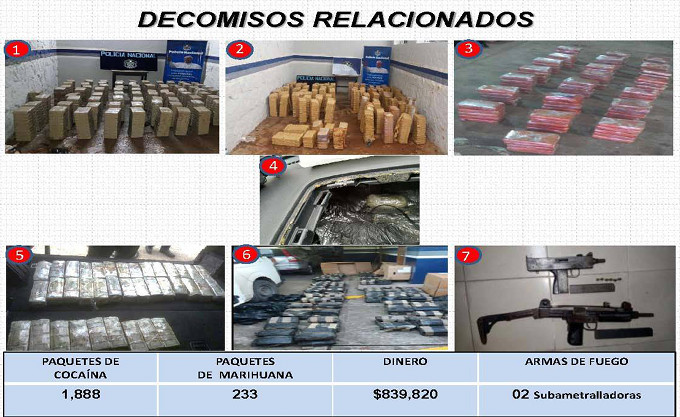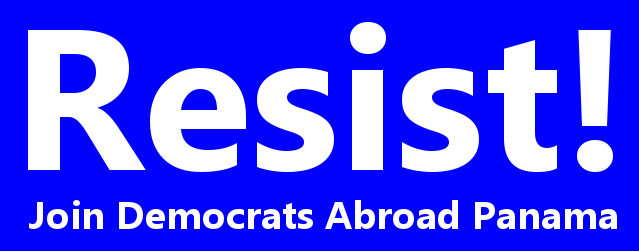

PRD, Martinelli, police and high court touched by Los Santos racketeering busts
by Eric Jackson
After a year of investigations that included widespread wiretapping and the infiltration of undercover agents, on September 24 police and prosecutors made their move. Eleven people were arrested, most prominently La Villa de Los Santos Mayor Eudocio “Pany” Pérez. Also arrested were a National Police major, a low-ranking police agent and the mayor’s top aide. On the “private side” of those arrested were a man whom authorities had seen before, cockfighting establishment (gallero) owner and alleged ringleader Manuel Antonio “Tony” Domínguez Walker, his father and stepfather, a 70-year-old retiree on a $660 a month pension who was the front man for a fabulous fleet of cars, and a well-connected 32-year-old lawyer and construction equipment rental company owner said to have been the group’s logistics mastermind.
The allegation is that Tony Domínguez’s cockfighting business, which also during Carnival times staged various events and spectacles in partnership with some of the other defendants and sometimes in association with noteworthy entertainers and athletes, was a drug running front. The apparent bigger part of it was a leg of a Colombia to North America drug smuggling route wherein drugs would come ashore on the beaches of Los Santos and be moved overland to Costa Rica and handed off to other organizations to be on their way. It appears that when drug routes shifted away from Panama the gang was into other ventures that include more retail racketeering. Seized in the raids were 2.1 tons of drugs — mainly cocaine and marijuana — more than $800,000 in cash, two submachine guns and a fleet of 18 vehicles, four of them with hidden compartments for smuggling, some of them quite expensive.
Prosecutors’ allegations are perhaps best read between the lines with an eye to things seemingly sensationalized and other data apparently downplayed or ignored but reported in other sources. These are not international cartel kingpins.
Damning for Pany, if the statements are not fabricated, are Tony’s stated ambitions to promote the mayor’s political fortunes. Pany Pérez is a member of the Democratic Revolutionary Party (PRD) National Executive Committee, serving as first undersecretary under the acknowledged party leader, legislator and secretary general Pedro Miguel González. González and another PRD notable, former labor minister Mitchell Doens, attended the mayor’s bail hearings. Pérez got house arrest rather than preventive detention from Judge Josefa Monfante, which prosecutors say they will appeal.
There are or will be denials all the way around, but Tony Domínguez was previously known to the justice system and some of those ties could harm the PRD, Ricardo Martinelli’s Cambio Democratico party and two magistrates of the Supreme Court. There are unlikely to be any legal consequences for the ties, but public perceptions and political fallout are other calculations. In 2010 Domínguez was arrested on money laundering charges along with two Colombian alleged drug traffickers. Zulay Rodríguez, now a legislator and head of the PRD women’s branch, is by many accounts the front runner for the 2019 PRD presidential nomination. Back then she was an alternate judge and she got the case of Tony Domínguez and the two Colombians. She granted bail to the three suspects, although at the time the law prohibited bail in drug cases. The Colombians disappeared but Domínguez stuck around long enough to have his bail revoked and be sent back to jail. Zulay Rodríguez was removed from the bench — some accounts, never confirmed, said at the urging of the American Embassy — and haled before prosecutors for questioning. However, she was never charged with any crime.
On his way out of office in the middle of 2014 Ricardo Martinelli pardoned Domínguez, who had not been tried and convicted. That’s one of the arguably illegal pardons for which Martinelli has been charged with a crime. The pardons were revoked but in any case the courts threw out the charges against Domínguez, in the final instance by a decision signed by the Supreme Court’s current presiding magistrate José Ayú Prado, his rival and fellow Martinelli appointee on the court Harry Díaz and soon-to-retire magistrate Jerónimo Mejía, a Martín Torrijos appointee.
National Police Major Luis Omar Alvarez Martínez was in the third rung of the police command structure, working in the force’s Panama Canal division. It would be a key position that smugglers would want to have under their control. He was ordered separated from the force and held in jail pending trial of this case. A 24-year-old police agent was also ordered held without bail, notwithstanding his lawyer’s argument that the evidence does not support the drug smuggling charge against him. According to defense counsel, all that is alleged is that her client buried a shipment of drugs that came ashore, pending its exhumation and further land transport. Burying the drugs, the argument went, does not equal the transporting of them needed to make out a smuggling charge. Desperate arguments like that aside, the police involvement was likely greater than so far revealed, with a National Police spokesperson saying that more officers are involved and will be arrested. So far nothing has been made public about further arrests of law enforcement people.
Another set of government ties that raises more questions than are now answered or even posed centers around Roxana Lisbeth Norato Samaniego. From 2005 until 2012 she worked in the human rights department of the national ombudsman’s office (Defensoria del Pueblo). The ties her subsequent construction equipment rental business may have had as a subcontractor for public works projects remains to be explored. In the private economy upscale construction projects often have many money laundering ties even if police and prosecutor hardly ever look into them. In any case the Public Ministry accuses Norato of being the logistics mastermind of the ring’s smuggling operations, but the judge gave her house arrest rather than preventive detention. Prosecutors are appealing that decision.
Perhaps if questions of which defendants did business with whom and when are pursued the circle of those implicated could get much wider. But at the moment the Operacion Gallero affair touches two of the country’s three major parties — the PRD and CD — while it does not implicate President Varela’s Panameñista Party. Hence allegations of a partisan set-up.
So does this embarrassment of the PRD, and to a lesser extent the already severely discredited Cambio Democratico, open the way for the Panameñistas to retain the presidency in 2019? Although there is time for things to change, and although Varela’s personal approval rating is up slightly — to about 37 percent according to Dichter & Neira — both history and polls suggest that there is little chance of any break with the post-invasion practice of voting the party holding the presidency out of that office. But if not the Panameñistas, and not the PRD, and not CD, then what? Look for major party candidates to cast themselves as outsiders. Perhaps an independent will come from out of the blue into serious contention. Maybe some event will alter all calculations. But even if all accusations are proven to be true, Operacion Gallero is unlikely to deliver a new Panameñista president in 2019.
~ ~ ~
These announcements are interactive. Click on them for more information.










